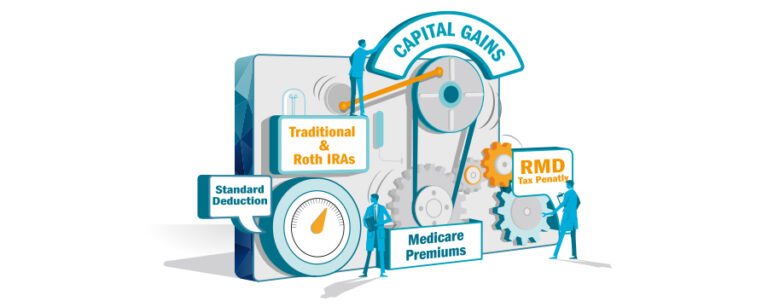Why might Preparing Taxes be Different for People living in Different States? Key Factors
Tax preparation is often regarded as one of the more stressful parts of personal finance, and rightfully so. Every year, millions of Americans face the challenge of filing their taxes accurately, with a good portion of those individuals needing to navigate not only federal taxes but also state-specific tax rules. While the federal government requires all citizens to file taxes, each state in the U.S. has its own set of tax laws, which means the process for preparing taxes can vary significantly depending on where you live.
This article explores the many reasons tax preparation differs from state to state, including variations in income taxes, residency rules, reciprocity agreements, and the overall complexity of state tax codes. Whether you live in a state with no income tax or one with high state taxes, understanding the key factors that affect tax preparation in your state is critical to avoid mistakes and maximize any potential refunds.
Table of Contents
ToggleWhy Tax Preparation Varies by State
The primary reason tax preparation differs across states is due to the distinct state tax laws that each state enforces. Unlike federal taxes, which are standardized across the entire country, state taxes are governed independently by each state’s legislature. This results in diverse tax rates, deductions, and credits available to residents.
- Federal vs. State Taxes: All U.S. residents are required to file federal taxes, which means everyone will complete a federal income tax return (IRS Form 1040). However, each state has its own system for imposing taxes. Some states have state income taxes, while others rely on alternative forms of taxation, such as sales taxes, property taxes, or tourism taxes. As a result, the state in which you live will greatly influence your tax filing process.
- State Tax Rates: Some states have progressive tax systems, meaning the more money you make, the higher your tax rate. For example, California taxes higher-income earners at rates of up to 13.3%, while Texas doesn’t impose any state income tax at all. This disparity in income tax rates has a direct impact on your state tax burden and the complexity of preparing your taxes.
- Deductions and Credits: Additionally, each state offers a unique set of tax credits and deductions. These vary from deductions for things like property taxes to credits for education expenses or donations to charity. In some states, you can also deduct mortgage interest or student loan interest from your state taxable income. As such, the availability of deductions and credits can affect the final tax amount due or the refund owed.
Understanding the state’s tax structure is essential for correctly preparing your taxes. Each state has its own residency rules and requirements on what types of income need to be reported and taxed.
Filing Taxes in States Without Income Taxes
Some states offer a significant simplification for their residents by not imposing a state income tax. These states include Florida, Texas, Nevada, and several others. Living in one of these states greatly reduces the complexity of your tax preparation process.
- Simplified Tax Filing: If you live in a state that doesn’t have an income tax, you are only required to file a federal tax return. The absence of a state income tax simplifies your overall filing process, making it easier for residents to calculate their taxable income and avoid the additional confusion that comes with state-specific tax laws.
- Alternative Taxes: While these states may not impose a state income tax, they still collect revenue in other ways. For example, they often have higher sales taxes or property taxes to make up for the lack of income tax. Nevada and Florida, for instance, rely heavily on tourism taxes, while Texas has a higher sales tax compared to many other states.
- Filing for Non-Taxable States: Despite not requiring state income taxes, it is still important for residents to remain aware of other potential state filings or local taxes that may apply, such as business taxes or specific property tax obligations.
State-Specific Tax Rates and Deductions
In states where income taxes are imposed, the tax rates can vary widely, and these rates can significantly impact your overall tax liability. Understanding how state taxes are calculated is essential to ensuring you are filing your taxes correctly.
- Progressive vs. Flat Tax Rates: Some states, like New York and California, impose progressive tax rates. This means that the more money you earn, the higher your tax rate will be. For example, California’s highest tax bracket hits 13.3% for individuals earning over $1 million per year.
On the other hand, states like Florida, Texas, and Washington have flat tax systems or no income tax at all. This could be advantageous for higher earners in progressive states, who may save significantly in taxes by moving to a state with a flat rate or no income tax. - Tax Deductions: States often allow various deductions that can reduce the amount of income on which you pay taxes. For example, you might be able to deduct property taxes, mortgage interest, or charitable contributions depending on the state. These deductions vary from state to state and are usually listed on state tax forms.
- Tax Credits: In addition to deductions, many states offer credits for specific activities. These could include things like education credits, childcare credits, or credits for renewable energy installations. These credits can reduce your tax bill directly and vary greatly depending on the state.
Part-Year and Nonresident Returns: Complex Filing Situations
If you’ve lived in more than one state during the year or worked in a state different from your state of residence, you may find yourself in a part-year resident or nonresident filing situation. These can make tax preparation much more complicated.
- Part-Year Resident Returns: If you move from one state to another during the year, you might need to file part-year resident returns in each state. A part-year resident return is required for each state where you lived, and it only includes the income earned when you were a resident of that state.
- Nonresident Returns: If you live in one state but work in another, you may need to file a nonresident return in the state where you work. The income earned in that state is taxed by that state, even though you are a resident of another state.
- Avoiding Double Taxation: Many states offer credits to avoid double taxation. If you pay taxes to one state, your resident state will often allow you to take a credit for those taxes to prevent being taxed twice on the same income.
Reciprocity Agreements Between States
Reciprocity agreements between states are designed to simplify tax filing for residents who work across state lines. These agreements generally allow you to avoid double taxation if you work in one state but live in another.
- What Are Reciprocity Agreements?: Reciprocity agreements are arrangements where two states agree to allow workers to pay income tax only in their state of residence. This prevents the need to file taxes in both states.
- Examples of Reciprocity States: A common example is the New Jersey-Pennsylvania reciprocity agreement, which allows New Jersey residents working in Pennsylvania to avoid paying Pennsylvania state income tax. Instead, they only file in their state of residence.
- How These Agreements Help: If your state has a reciprocity agreement with another state, you typically only need to file one tax return in your home state. You will also need to submit a reciprocity exemption form to your employer to stop withholding taxes for the nonresident state.
Impact of Local Taxes on State Filing
Beyond state taxes, some cities or counties impose local taxes that must also be considered when preparing taxes. In large cities like New York City, Chicago, or Philadelphia, local taxes can add a significant burden to the overall tax preparation process.
- Local Income Taxes: In cities like New York City, Chicago, and Philadelphia, there are additional local income taxes that residents must file, on top of state and federal taxes.
- Other Local Taxes: Many cities also impose additional taxes on property, sales, and other activities. For example, Chicago has an additional sales tax, and New York City has property taxes that vary from borough to borough.
- Filing for Local Taxes: In states or cities with local taxes, the filing process can become more complicated. You may need to file separate local tax returns in addition to your state and federal returns.
The Importance of Understanding State Residency Rules
State residency rules are crucial to understanding how much income you need to report and how taxes are calculated. States determine your residency status based on different criteria, which directly impacts how you file your taxes.
- 183-Day Rule: Many states use the 183-day rule, where you are considered a full-year resident if you live in the state for more than 183 days during the tax year. In such cases, you would file a resident tax return and report all income earned worldwide.
- Part-Year Resident Rules: If you move between states, you may file part-year resident returns for each state. Each state has its own rules about how much income should be reported for part-year residents.
- Income Allocation: States require you to allocate your income based on your residency period. For example, if you lived in California for six months and then moved to Nevada, you would allocate only six months’ worth of income to California for tax purposes.
Practical Tips for State Tax Filing
Here are a few tips that can make the tax filing process smoother:
- Use Tax Software: Tax software can help navigate complex state-specific tax rules, such as part-year resident returns and local taxes, ensuring you’re filing correctly for each state.
- Consult a Tax Professional: If your tax situation involves moving between states, working in different states, or other complex issues, it may be worth consulting a tax professional who is familiar with state-specific tax laws.
- Stay Updated: Tax laws change frequently. States may update their tax laws every year, so staying informed about any changes in your state’s tax code is essential.
Conclusion
why might preparing taxes be different for people living in different states? In conclusion, tax preparation varies significantly across states due to differences in state tax laws, income tax rates, residency rules, reciprocity agreements, and local taxes. Understanding the unique tax structure of the state in which you reside is crucial for accurate filing. By staying informed and using available resources, you can streamline the tax filing process, avoid mistakes, and maximize your potential tax refund. Always be aware of state-specific regulations, and consider consulting a professional if your situation involves complex factors like living or working in multiple states.
For more information visit: Businesstechtime.com






